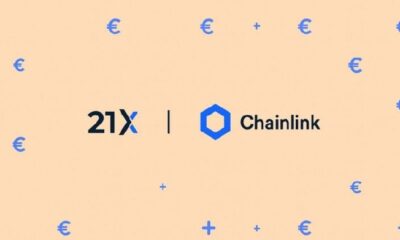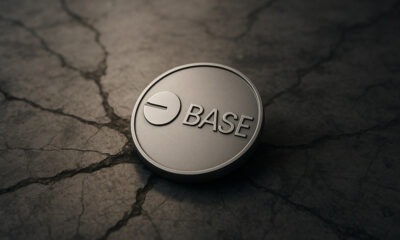Blockchain
Tokenized equities are gaining a new multichain base
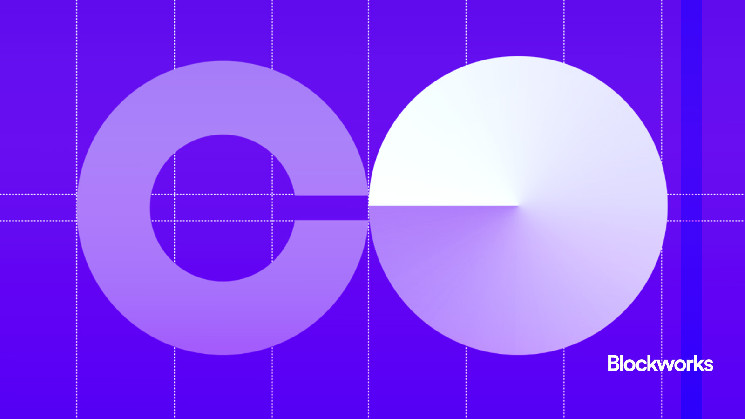
Credit : cryptonews.net
Dinari is increasing its tokenized fairness providing to the Base chain, complementing current implementations on Ethereum mainnet, Arbitrum, Blast and Kinto.
In an effort to bridge conventional finance with DeFi, Dinari is giving traders all over the world entry to the US inventory markets via tokenized shares often known as dShares. These dShares are backed 1:1 by off-chain belongings, making them absolutely collateralized and compliant with regulatory requirements.
Not like early artificial fairness tokens reminiscent of these supplied via Mirror Protocol, Dinari’s strategy emphasizes safety and compliance. The corporate has invested considerably in automating processes with clearing companions and on-chain file maintaining to make sure that every tokenized asset is absolutely backed by actual shares, even when the tokens are accessed throughout a number of blockchains.
The choice to increase to the bottom chain – Ethereum’s bullish rollup – is a part of Dinari’s broader imaginative and prescient to create a globalized market for tokenized belongings. Base has traditionally been cautious with real-world belongings, stated Dinari co-founder Gabriel Otte.
Learn extra in our opinion part: We have to tokenize belongings with content material, not hypothesis
“For a very long time, Base was very reluctant to the touch RWA – as a result of it was clearly Coinbase,” Otte instructed Blockworks. “I feel that actually began to alter this yr.”
Base has began attracting dapp builders keen on discovering regulatory-compliant paths to tokenization, reflecting a broader shift within the business, Otte stated.
In line with Dinari Chief Know-how Officer Jake Timothy, it additionally had one of many extra profitable makes an attempt to make use of its Coinbase trade distribution channel to draw new customers.
“There are lots of chains on the market, however we’re actually maintaining an eye fixed out for people who find themselves centered on closing what I see [as] the final mile of UX, the place folks can merely click on, fund their pockets, begin buying and selling instantly and have or not it’s a really seamless expertise,” Timothy instructed Blockworks.
Learn extra: Coinbase desires to help ‘accountable DeFi growth’ via Base
A earlier enlargement to Blast was unsuccessful, however supplied a chance to check the waters, Otte stated.
“Blast was an instance of attempting to see… how we are able to deliver a extra steady asset to market, if you’ll, to the intense,” he stated.
Blast is all about gamified incentives, and Dinari’s app by no means acquired off the bottom.
“There’s mainly no exercise on Blast as a result of we’ve not signed up for all these rewards, the factors system and all that,” Otte stated, including, “we have realized lots about who our customers are – a minimum of initially – from that have, and the individuals who went to GameStop via YOLO, ended up doing so on Arbitrum.
Learn extra: Blast incentives are meant to draw sturdy builders as a result of worth leaks
Dinari’s infrastructure is designed to facilitate the minting and burning of tokenized shares throughout chains, utilizing an off-chain centralized order e book to trace belongings.
That makes it doable to be chain-agnostic, and Dinari expects that dAssets may also be delivered to Solana within the close to future.
“As a result of we’re the issuer, now we have foreign money [and] burn rights to all these fungible tokens,” Timothy defined. “However we are going to attempt to resolve these as shortly as doable.”
Dinari’s product providing is especially engaging to monetary establishments and builders, who can combine these tokenized shares into their platforms through APIs. This white-label service permits neobanks, native buying and selling platforms and asset managers to supply their customers inventory buying and selling with out the complexity sometimes related to blockchain expertise.
Dinari’s dShares can be found on choose secondary markets via DeFi DEXs reminiscent of Jupiter, though entry is prohibited for US customers. This displays the corporate’s cautious strategy in navigating the difficult regulatory panorama in the USA.
Dinari is a registered SEC switch agent and is exploring additional company licensing, reminiscent of a FINRA broker-dealer license – although they do not technically want it, Otte defined.
“It is a chance to elucidate what you do and what you hope to do,” Otte stated. “The secret with regulators is: all the time ensure you do not hurt prospects – that is form of rule primary.”
-
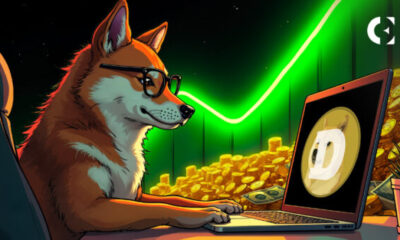
 Meme Coin6 months ago
Meme Coin6 months agoDOGE Sees Massive User Growth: Active Addresses Up 400%
-

 Blockchain12 months ago
Blockchain12 months agoOrbler Partners with Meta Lion to Accelerate Web3 Growth
-

 Videos12 months ago
Videos12 months agoShocking Truth About TRON! TRX Crypto Review & Price Predictions!
-

 Meme Coin1 year ago
Meme Coin1 year agoCrypto Whale Buys the Dip: Accumulates PEPE and ETH
-

 NFT9 months ago
NFT9 months agoSEND Arcade launches NFT entry pass for Squad Game Season 2, inspired by Squid Game
-
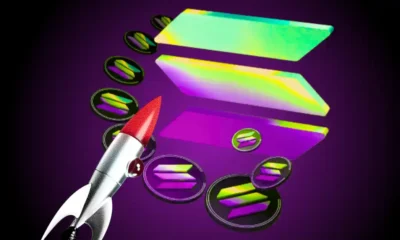
 Solana3 months ago
Solana3 months agoSolana Price to Target $200 Amid Bullish Momentum and Staking ETF News?
-
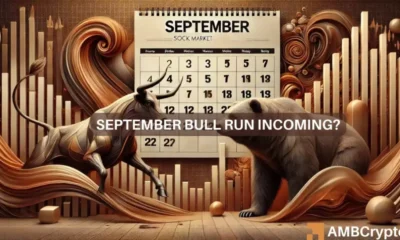
 Ethereum1 year ago
Ethereum1 year ago5 signs that the crypto bull run is coming this September
-

 Gaming1 year ago
Gaming1 year agoGameFi Trends in 2024





